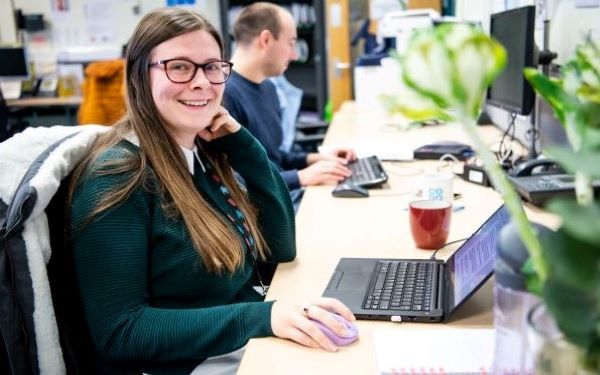“I think two things have made a real difference in the last year. The first has been the shift to the pod system and the second has been our motivational interviewing training.”
Mariné Rooi is an advanced social worker in one of the new family safeguarding teams at Surrey County Council. She says she has always felt supported and valued during the three years she has worked at Surrey, but the changes over the last year have boosted her job satisfaction as well.
This seems remarkable, considering the last year has involved a wholesale restructure of Surrey’s children’s social work department.
Executive director of children’s services, Dave Hill, has begun implementing his vision for the council that has twice been rated inadequate by Ofsted and it has included the adoption of the family safeguarding model.
Family safeguarding model
This model garnered national attention when Hertfordshire County Council developed it and subsequently reported a 55% reduction in the number of children on child protection plans, a 19% reduction in care proceedings and a 10% reduction in the number of children being taken into care over 30 months.
Surrey’s senior leadership team are confident the results can be replicated given the statistical similarities between the two counties.
Child protection and child-in-need teams in Surrey have been merged and now work in pods alongside family support workers and specialist adults’ workers in domestic abuse, mental health and substance misuse. Other agencies, such as CAMHS, also have workers on-site.
The model focuses on improving family resilience and attempting to keep children with their families as long as possible.
Faster processes
Mariné admits the restructure was a challenging process that caused anxiety, and some social workers decided to leave. But she says the benefits have been worth staying for.
“We used family group conferences in the past, but this is different. This is going much deeper to build family resilience and make sure the change is long-lasting and not just done to get social services off a family’s back.”
Fellow advanced social worker Nicola Adesuji agrees. “It’s a much nicer way to work with families and we’re given more time to spend with them and that’s made a real difference.
“Once the families are ready to change then, because we have those specialist workers as part of the team, access can be provided quickly and without the usual bureaucratic hurdles. Everything is faster because those workers already know of the family and the history as well.”
Better multi-agency working
The family safeguarding model is part of a system-wide change at Surrey that included initial work to strengthen the early help offer, including working with other agencies to better understand thresholds.
Reducing the number of referrals has meant social workers, on average, now have about 15 cases each. Because these are worked by a group, Mariné says social workers can to spend more time with families without feeling it is at the expense of other cases.
Both Nicola and Mariné also praise the motivational interviewing (MI) training that Surrey has provided for every social worker in the team.
Motivational interviewing
Nicola says: “I’d done MI training previously but this has been of a much higher quality. Now, we get regular half-day follow-ups with the same trainers and we’re encouraged to bring difficult cases that we’ve been working on with us so it really embeds the techniques.”
Mariné says motivational interviewing has changed the way she practices for the better. She cites an example of a very resistant family who had gone from making complaints about the service to anxiously checking she would stay on as their social worker, even after their child protection plan had ended.
“It’s been amazing. And I think it’s because I started approaching this family from a place of ‘loving kindness’ and trying to roll with the resistance. Families don’t always work at the pace we want them to but it’s about having the time and patience and skills to stay with them.
Inspired and enthused
Nicola says the MI training has also improved the quality of the supervision that she both gives and receives.
“It’s helped me feel more confident [when coaching family support workers] and as a supervisee I’ve noticed that I’m encouraged to be more reflective and think about my own ideas and responses to situations.”
Siobhan Walsh, assistant director for south west Surrey, says for her, the real change is that social workers are now more inspired by their work.
“It’s lovely talking to someone when they’ve been able to achieve real change with a family and see the difference it makes to their enthusiasm.”
Part of the journey
She says she’s also excited by Surrey’s approach to multi-agency working, which includes ensuring the courses, training and career development offered by Surrey’s new children’s services academy are open to those working in police, education and health as well.
“Surrey is on a huge journey. The last year has been about getting the foundations right and we can already see the difference in some of the key performance indicators. Now it’s all about getting the culture and practice right.”
Check out the career opportunities currently available with Surrey’s family safeguarding teams or register your interest for opportunities in other teams at Surrey.
Watch the video for more information about Surrey’s family safeguarding model




 Facebook
Facebook X
X LinkedIn
LinkedIn Instagram
Instagram